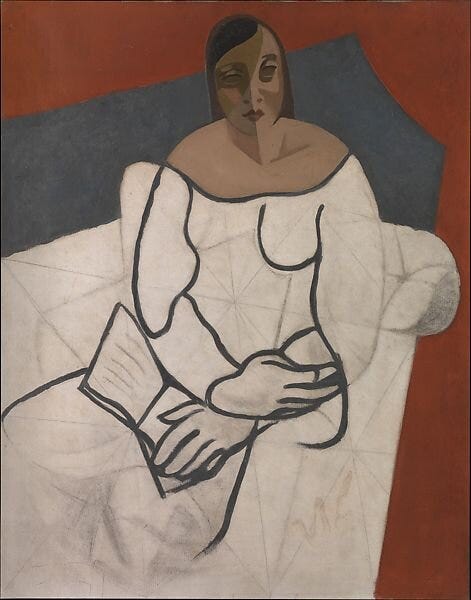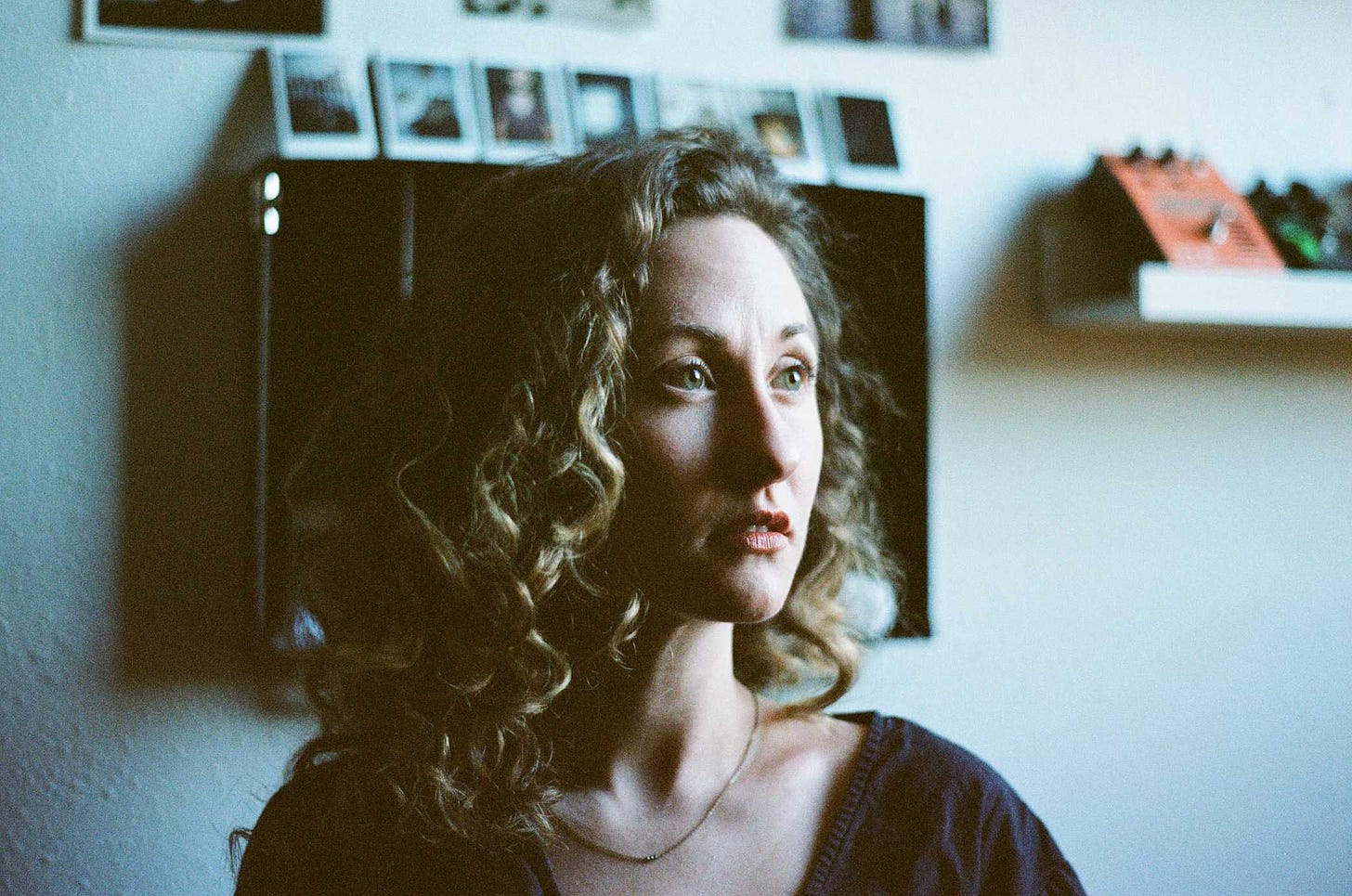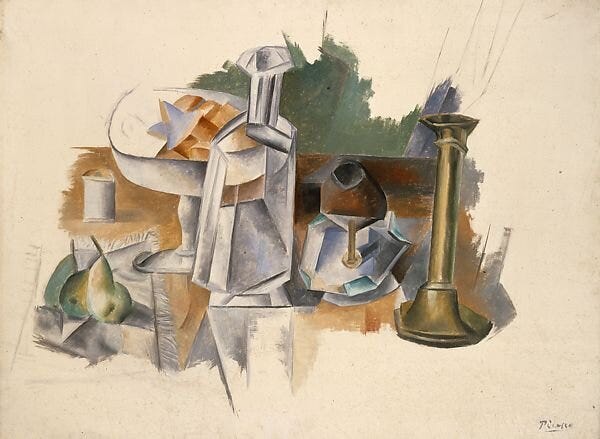[from the archives] the sense of an ending
from June 2021. on the challenge of calling a piece of creative work finished. feat. my father, my brother, my friend, Jami Attenberg and Natalie Goldberg
hello friend,
How do you know when something is finished?
(/when it is finished with you? /when you are finished with it?)
By “something” I’m referring here to a long-term creative work or project. But it’s also a conversation I’ve been having with friends on navigating: the end of a relationship, the transition from pregnancy to birth, a move from here to there, the phase shifts of a life.
I turn this question—of finishing—over and over in new ways in the final stages of my dissertation, trying to wrap up 350+ pages, 6 years, into some sort of conclusion, some sort of meaning. And, at the same time, as I navigate other not-yet-but-coming seismic shifts in my life, this question stirs an internal tug-of-war between parts asking not to be left behind.
**I want to set aside the typical adages that arise when we try to talk about endings: the it’s in the processes, the it’s not the destination but the journeys, the it’s just a drafts (and, in dissertationland…a good dissertation is a done dissertation! as if it were that simple, and maybe it is). I know, with some distance, this mini-odyssey will sediment its meaning in me. But while these sayings hold their truth, for me they can bypass the reality (which recently blindsided me) of just how hard—emotionally—it can be to claim a piece of work “finished.”
Yes, there are the external cues. A deadline. An approval. A ritual. But are these not also externalities we outsource our endings to? Relieving ourselves of the psychic wrestle of letting go, moving on, declaring something “done,” or even convincing ourselves that such a thing as “finished” exists?
And yes, an ending is also a beginning. And yes, endings rarely arrive in the form we anticipate; they can feel too abrupt and too drawn-out all at once (in the words of Mary Oliver, “Doesn’t everything die at last, and too soon?”) And yes, while what we create takes on a life of its own as it goes out into the world, the lives that make it up—that made it—are perpetually “unfinished.” Yet somehow this concept of “unfinishedness” can feel like a convenient gloss, an escape from the fraughtness of tying up ends that refuse to completely cohere. And that in order for work to leave our minds and enter the world, we need to claim some modicum of finished-ness.
I wonder if Rebecca Solnit’s blue of distance (see Vol 2 Issue 2) doesn’t also apply to the sense of an ending; you start to think you’re closing in, only to locate it on a further horizon? I’ve noticed as I edit and rewrite how easily I become blind to what I’ve written; all I can see are the vast distances that didn’t make it on the page.
Maybe what makes finishing a big piece of work so challenging is how the life cycle of creative work brings us face to face with the cold hard fact of time. In allowing the looming end of my PhD to be (for myself) not only an intellectual thing but also an emotional one, I stumbled across a surprising insight: In closing this 6-year chapter, I’m confronting the girlwoman who started this whole thing at 23. My life then looked nothing like it does now. A hell of a lot of change, healing, and growth has happened. Parts of myself are embedded in this work. The me who is finishing this dissertation is accountable to particular decisions she made — at 24, 25, 26 — decisions the now-me may have made differently. I also have so much to owe her. She was brave, sometimes braver than the current version of me feels.
It returns, I suppose, to the separation of one’s work/creations/art from one’s personhood, which I grapple with endlessly (see Vol 1 Issue 8). This month’s PORTRAITS conversation with Corinne Sharlet, a Portland-based singer-songwriter and psychotherapist, engages these very themes. Our conversation about perfectionism, art and work and identities brought solace and a fresh perspective. And reminded me of the importance of not being too precious about the things you make.
Vol. 02, Issue 06 of T H E | L I M I N A L is a rumination on endings and the sometimes-intense emotional landscape of “finishing.” In the longer Spilled Thoughts below, I consider how people in my orbit have approached endings/finishing. Maybe you, too, are approaching a phase shift / finishing of your own, and if so, I hope these words can be of companionship. I know it is hard. It is also brave.
xx, A
Frank Gehry’s concept sketch of the Guggenheim Museum Bilbao (1991)
VOICE
“Some periods of our growth are so confusing that we don’t even recognize growth is happening. We may feel hostile or angry or weepy and hysterical, or we may feel depressed. It would never occur to us, unless we stumbled on a book or a person who explained to us, that we were in fact in the process of change, of actually becoming larger, spiritually, than we were before. Whenever we grow, we tend to feel it, as a young seed must feel the weight and inertia of the earth as it seeks to break out of its shell on its way to becoming a plant. Often the feeling is anything but pleasant. But what is most unpleasant is the not knowing what is happening. Those long periods when something inside ourselves seems to be waiting, holding its breath, unsure about what the next step should be, eventually become the periods we wait for, for it is in those periods that we realize that we are being prepared for the next phase of our life and that, in all probability, a new level of the personality is about to be revealed.”
— Alice Walker
Juan Gris, “Woman Reading,” ca. 1927
SPILLED THOUGHTS
the sense of an ending
Conversations with those in my orbit—people I know and who I read—about how they deal with endings / finishing long-term projects:
1. Your work is not a cake. My father recently completed, and is now querying, the manuscript of his first science fiction novel, at age 73 (can I just pause and say how damn proud I am of him!). For 40 years he carried with him two things: the first sentence and the ending. But a beginning and an ending does not a story make. The story between he could only discover through the act of writing. Recently, he told me:
“My sense is that it’s more about accepting, embracing, and feeling content with stopping. Few of life’s important projects are like baking a cake where you insert a knife which comes out clean when the cake is finished. It’s more, ‘This is OK. It’s better to release this to the world than use “it’s not finished” as an excuse to just keep working on the project and not let it see the light of day.’”
I like this distinction between finishing and stopping. He also makes an important point—not-finishing is not a neutral or passive act; it is an active choice not to release something to the world, with its own consequences.
2. Let it go to sleep and dream. On the phone last night with my brother Wes, who is a special effects & 3D artist navigating his own major career shift and finishing a decades-long product, I mentioned my father’s cake metaphor. Wes said:
“When you’re icing the cake you can go too far, and end up pulling up the cake along with it. You can really f*** up a cake by icing it too much.”
He then went on to tell me that the time/deadline only really applies to work he doesn’t care about. “It fades into obsolescence.” For the creations he does care about:
“The ‘finished’ zones are more like periods of dormancy, where it goes to sleep for awhile. And then, when it comes back, it incorporates all the dreams it had in the meantime.”
3. Feel the butterflies. In my dissertation writing group, my friend Isa described the “butterflies” she feels when something she’s written is edging on finished. I love this concept of an embodied sense of an ending, and the braveness it takes to actually allow yourself to be delighted by something you’ve created/written, if only a fragment. Is finishing a feeling, rather than a state? Does delight make it easier to let go?
4. Box it up. Writer Jami Attenberg, who just shipped off the final draft her memoir to her editor, writes in her newsletter Craft Talk about her own process of finishing :
“I can genuinely examine the work and read entire blocks, pages, chapters of text that I love, and recognize how finished it is in so many ways. These drafts are alive always, everything could always be pushed one way or another, and knowing this shows me that no piece of art can be absolutely perfect, and I find that deeply comforting. But I can see what I’ve accomplished at this stage. I can see how it moves and swings and conveys what I wanted it to convey. I can see how it’s a piece of art. And then it begins to feel done.”
Jami proceeds to put the physical pages of her final draft in a cardboard box, seal it with duct tape, and haul it up to her attic. (note to self: do this)
5. Compost. Natalie Goldberg, in Writing Down the Bones, offers the concept of composting as a way of allowing experiences—and raw material that doesn’t quite make it onto the page—to sift through our bodies and become, with time, fertile.
“Our bodies are garbage heaps: we collect experience, and from the decomposition of the thrown-out eggshells, spinach leaves, coffee grinds, and old steak bones of our minds come nitrogen, heat, and very fertile soil. Out of this fertile soil bloom our poems and stories…Continue to turn over and over the organic details of your life until some of them fall through the garbage of discursive thoughts to the solid ground of black soil.”
6. In Ongoingness: The End of a Diary, Sarah Manguso writes about ending a 25-year-long 800,000 word diary she kept, a decision spurred by what she calls an “amnesia” prompted by pregnancy and motherhood to relate to the passing and impermanence of time differently.
I find this a fitting place to “end” :
“All I could see in the world were beginnings and endings: moments to survive, record, and, once recorded, safely forget. I knew I was getting somewhere when I began losing interest in the beginnings and the ends of things.”
WRITING PROMPT
Take a moment with your writing hand placed over your heart, and ask: How does the sense of an ending show up in my body? What does this concept of “finishing” stir within me?Hand to pen, pen to paper, keep the pen moving.
PORTRAITS
This month, I’m delighted to introduce you to Corinne Sharlet, a Portland-based singer-songwriter and psychotherapist, in our latest PORTRAITS conversation.
Corinne and I went to high school together in the (then-!)small mountain town of Bend, Oregon, and also worked together at Deschutes Brewery in Portland for a short time. We recently caught up to talk about the release of her debut album, A Lovely Future, making art during the pandemic, breaking up with perfectionism, integrating creative and professional work identities, and so much more.
It’s a rich and honest conversation that integrates many of the themes in this issue. Join us below!
THU, JUL 01
Corinne Sharlet :: Creativity as Psychic Survival
“I think we’re all craving art that feels more human than machine,” Portland-based singer-songwriter and therapist Corinne Sharlet says of the importance of embracing imperfection in art-making, “more
EXCERPTS:
“When my self-worth becomes intertwined with how my music sounds, how proud of it I am or whether it is received well, that means trouble.”
“I used to think that in order to be a successful artist I had to give up having a professional career as a therapist.”
“I had a professor in undergrad tell my class once that “ideas are cheap”. By saying “ideas are cheap” he was trying to encourage us not to get too hung up on one creative decision but rather to just keep doing it, keep making stuff – what we make is not so precious.”
OFFERINGS
WITHIN is OPEN for registration!
WITHIN, my series on yoga + embodied writing, returns for SEASON 3 in FALL 2021! Embodiment practices to reclaim your creative voice, via yoga, meditation, breath, and writing, all in a supportive and inspiring global community.
As the external world in many ways “opens up” and we emerge from our cocoons of isolation, how are you continuing to cultivate and tend to the vast landscape and depths within you?
Over the course of 12 weeks (September - November) we’ll gather for 6 live practices. The in-between spaces are filled with personal practices, rituals, partnerships, readings and writing inspiration to support your journey within. There is an on-demand (non-live) option too for those with unpredictable schedules or incompatible time zones.
The most beautiful thing about WITHIN, bar none, is its humans, who gather from 10+ countries, 4 continents, time zones spanning LA to Australia, to practice and inquire within. I know many of us are eager to return to IRL gatherings, but also maybe trepidatious. I can assure you this practice and community is extremely human, and most of the time is spent in your body/on your mat or staring into the empathic, supportive faces of your community.
Registration is now OPEN. Spots are limited. I would love to have you on this journey!
RESOURCES
DOING:
Social media distancing | Last month, I wrote you about being “extremely online.” In doing so I realised an “extremely offline” summer was calling for me. I’ve deleted social media apps from my phone and have been surprised by how much better I feel. If you’ve been feeling a tug to social media distance yourself, know I’m there with you on in solidarity, and if you have any thoughts about the intersections between social media & mental health & creativity — write me! This is an important conversation I don’t feel is being had enough. (also Marlee Grace is one of my favorite people on the internet actually talking about this)
READING:
Finishing: The Wrong Way to Save Your Life
Up next: Somebody’s Daughter
LISTENING:
Hiro Boga on the “ecology of business,” with its own separate genius and purpose from its creator/owner.
Pablo Picasso, “Carafe and Candlestick” (1909) (© 2015 Estate of Pablo Picasso / Artists Rights Society, New York)
PLAYLIST







